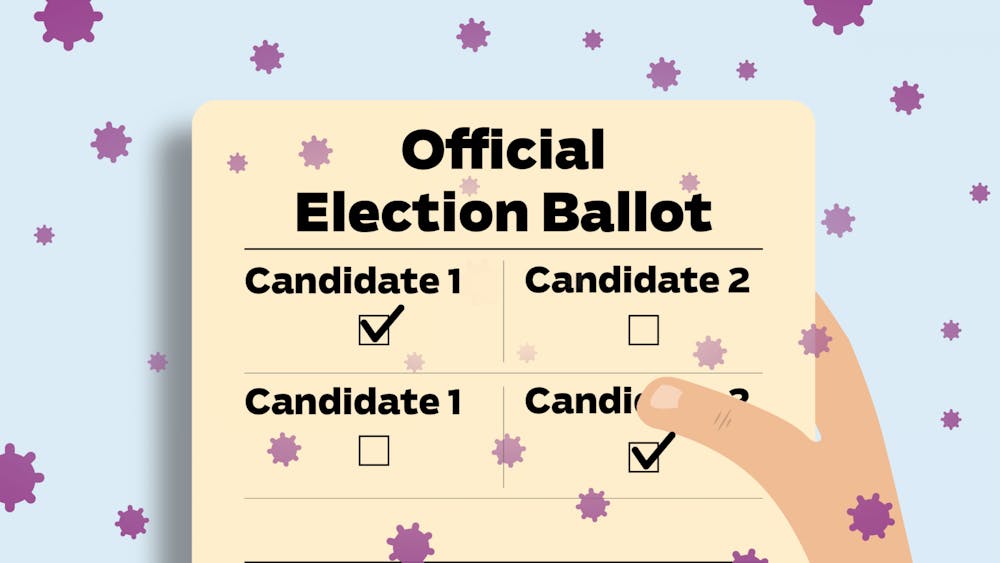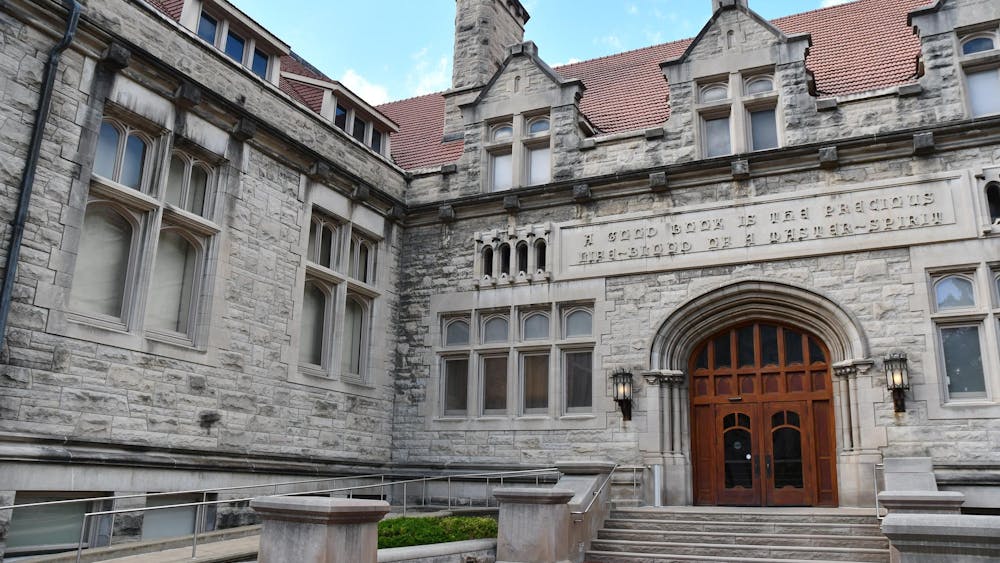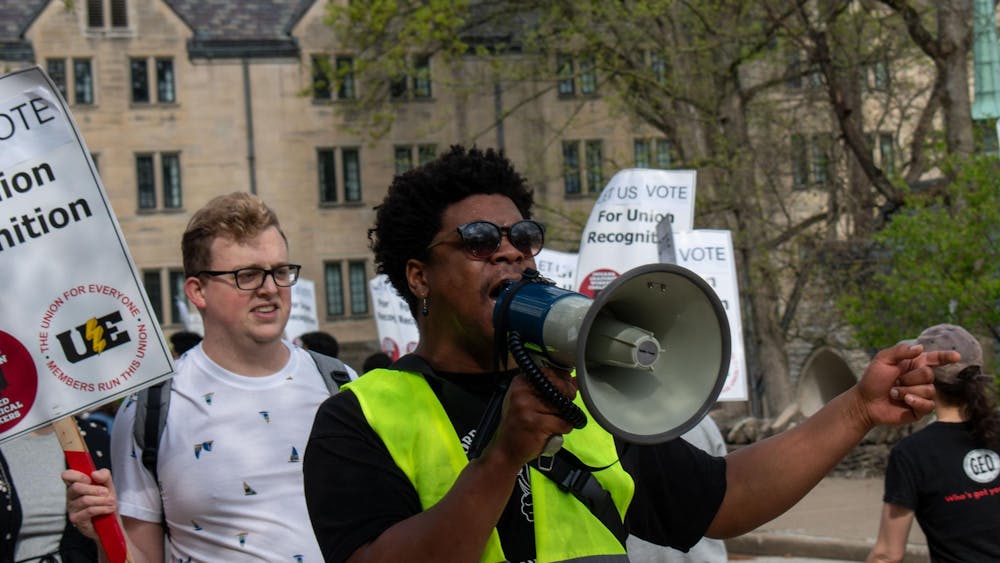Colten Carter has voted in every U.S. election he has been eligible for. This year, the IU junior almost had to break his streak — because he contracted COVID-19.
Carter said he planned to vote in person on Election Day. A week earlier, he was tested for the coronavirus via IU’s mitigation testing. On Thursday, he tested positive and began his mandatory 10 days of quarantining. He wouldn’t be free until at least four days after Nov. 3.
“I had to do some research on my own, and it's pretty confusing, I'm not gonna lie,” Carter said of his voting options after testing positive. “It took me a good while, maybe like an hour, trying to find out how to actually vote.”
Recent guidance from the Centers for Disease Control and Prevention encourages voters with COVID-19 to vote in person at the polls, saying that “voters have the right to vote, regardless of whether they are sick or in quarantine.”
“While it is true that even COVID patients have a right to vote, the CDC formulation is idiotic, and presents as an individual decision what is a great public health challenge,” IU political science professor Jeffrey Isaac said in an email. “If people with the virus vote in person, they will endanger others and themselves. That is a medical fact.”
The Monroe County Elections Office said it had not heard and did not endorse the recent CDC guidance. Instead, a representative from the office said sick voters should use the travel board voting option.
Travel board is a voting option for voters confined to their home due to illness, injury or disability, according to the state of Indiana’s website. If the application is received by the deadline and approved in time to secure one of the limited spots available, the elections board sends two people, one who identifies with each political party, to deliver a ballot and assist the voter with filling it out within the 19-day period before Election Day.
This voting option is typically used for voters in the hospital. Using the travel board to help voters infected with COVID-19 could pose dangers for board members. While the CDC advised states open polling locations exclusively meant for sick voters as a safe way to ensure COVID-19-afflicted citizens could cast a ballot, Indiana did not provide this resource.
Carter applied to vote by travel board over the weekend, prior to the Nov. 2 application deadline. Yesterday evening, travel board representatives came to his apartment and he was able to vote.
Carter said though he was able to figure it out, there is still not enough information available about how to vote safely if you contract the coronavirus.
“I've never heard of this traveling board or whatever,” Carter said. “I didn't even know what to do with how to vote if you get sick."
Indiana is one of only five states that still required an excuse to get an absentee ballot, making it one of the most difficult places in the U.S. to safely vote during the pandemic. Concern about the COVID-19 pandemic was not a valid excuse for Hoosiers requesting absentee ballots.
“I think that every state that refused to make mail-voting available to citizens because of the dangers of COVID-19 is barbaric,” Isaac said. “And Indiana is one of five states in this category.”
Carter said if Indiana had adopted policies making it easier to get an absentee ballot, he probably would have voted earlier.
“It's pretty upsetting,” Carter said. “My biggest worry is that certain communities are disproportionately affected by the coronavirus. It's kind of unfair to certain communities that more people aren't going to be able to vote.”
According to the New York Times, in July there were three times as many coronavirus cases among Black and Latinx Americans than there were among white Americans.
At least 1.7 million Hoosiers voted early — nearly 40% of all voters who were registered during the primaries, the most recent total available. But, 32,934 Hoosiers have tested positive for the virus since the Oct. 22 deadline to apply for an absentee ballot, and at least 2,946 have tested positive since the Nov. 2 travel board deadline, according to the Indiana State Department of Health.
If 60% of those COVID-19 patients hadn’t yet voted, almost 20,000 people would have to decide between not having their vote count and possibly putting others in danger of contracting COVID-19.






